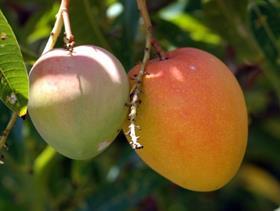
While speculation is rife on when the EU ban will be lifted, how it’s affecting the domestic prices of mangoes and the further effects on small-scale farmers, much of the fuss over the blockage of Indian mangoes appears to be largely unsubstantiated.
The ban on mangoes, two types of gourd, eggplant and taro plant came into effect on 1 May after authorities in Brussels found Indian exports contaminated with fruit flies last year.
With less than 10 per cent of Indian mango exports shipped to the EU, Dr Sudhanshu from government export agency APEDA, said the already well-established markets of the Middle East, Asia and the US were still thriving.
“The EU ban is not so much of a bad thing,” said Kaushal Khakhar, CEO of Indian exporter Kay Bee. “With the EU ban in place, there’s now potential for exporters to explore other markets including South East Asia, Australia and New Zealand.”
Taking the optimistic approach, Khakhar said Indian exporters are now focusing on the established trade with the US, and with government talks underway, Kay Bee is hoping to start exporting mangoes to Australia next year. “With the South East Asian market completely untapped, we’re exporting to Hong Kong this year and have our eyes set on Malaysia as well,” said the CEO.
“India needs to strengthen post-harvest treatment to ensure the quality of the produce is in line with the demands of each country,” said Sudhanshu. Citing different treatments needed for different countries, including irradiation treatment for the US and vapour heat treatment for New Zealand, Sudhanshu said ensuring India meets the requirements of the EU depends on what they ask for on their end.
Sudhanshu said the ban is an opportunity for India to strengthen the food safety protocols it already has in place, including the mandatory steps of all perishable goods passing through APEDA-certified packhouses before exporting them.
Of concern is the falling price of mangoes within the domestic market, to be investigated by a five-member committee including Sudhanshu, which will report its findings on 22 May.
Despite speculation the EU may have lifted the ban, both sources confirm it is expected to be in place until December 2015.



